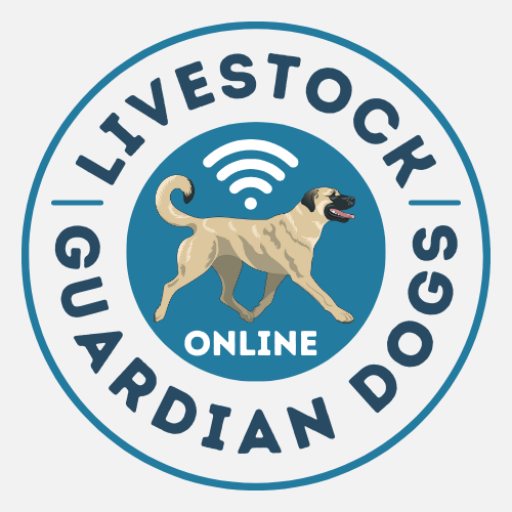January 8th, 2019
The Matter of Breed and Type
Breed matters!

Livestock guardian dogs have been selected for type and performance over centuries in multiple regions around the world. This study is scratching the surface of which genes correlate with predictable behaviors in a given breed, noting that breeds are unique in these various loci. While they are anthropomorphic in this article, the principle is sound.
A Border Collie, a German Shepherd and a Lab are all very different dogs. Yes, there are individual characteristics in all dogs, but the overall temperament and performance of a dog in a selected task is highly dependent on breed and type.
This brings up a touchy subject that relates to LGDs: We see many listings of outcross pups that are partly livestock guardian dog and partly another breed/type.
Examples of some common farm dog outcross choices:
Border Collie, Heeler, German Shepherd, Labrador, Golden Retriever, Poodle (why?).
What happens when we cross an independent, less biddable LGD with the drive of a herding breed or the dependent nature of a general farm dog? Do the genes mix like red and blue paint to make a perfectly purple puppy that is the best of both breeds or types?
The simple answer is, of course, NO! That is not how genetics function. Instead, what you can expect from a litter of pups advertised as able to “do it all” thanks to their herding sire and LGD dam is a spectrum of inner conflict with zero predictability as to when a given characteristic may surface:
Instinct confusion: Do I chase/work the sheep, or do I protect them and apply no pressure at all to do it?
-This makes even the best behaved dog unreliable for unattended work. Even if he is perfect for years, you may come out one morning to the stock bunched or worse. It sadly has happened on many farms.
Biddability: Do I require human input to do my job or do I make my own decisions?
-A dog that will not recall or “leave it” while using inborn drive instinct is a dangerous force in any pasture. Add the size common with crosses at over 80 lb, and you have a large, unruly animal who thinks they know better than their handler.
Unpredictable outcrosses can be good pets and farm dogs, and are only recommended to be with stock when supervised and under the control of a handler. This is because genes correlate with specific behaviors and may not present predictability in a type outcross.
Where an LGD pup will predictably mature between 18 and 24 months, and then be reliable for the next decade or better to live 24/7 with their wards, that expectation is lost on an outcross.

It is true that many LGD pups go through phases of misbehavior in the course of their development, approximately every 6 months or so for the first 2 years is somewhat standard. Training of any working dog includes a similar or longer training window to reliable working service. However, when we mix breed types in Hope’s that this one dog will guard the flock, herd them in at night, and be happy without constant human contact- we set ourselves and our dog up for failure. It is our responsibility as stewards of these animals to give them the tools to succeed in whatever we ask them to do.
Selecting the right breed for the right job is imperative.
To your success!



Quite a lot to think about…..
I agree!
Agree!!! And your pup in the last pic looks so much like my boy!